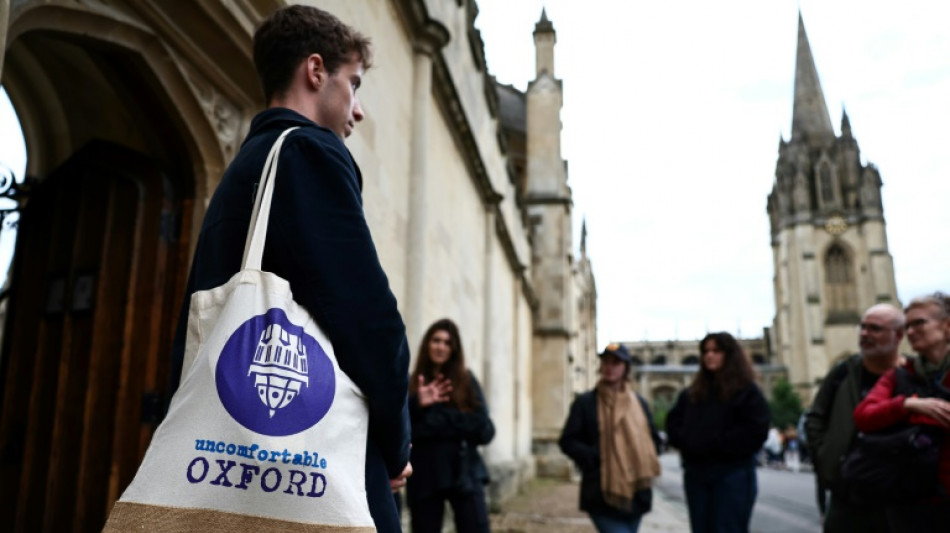
-
 Dembele sinks Arsenal as PSG seize edge in Champions League semi-final
Dembele sinks Arsenal as PSG seize edge in Champions League semi-final
-
Les Kiss to take over Wallabies coach role from mid-2026
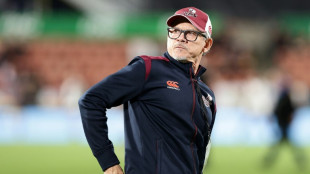
-
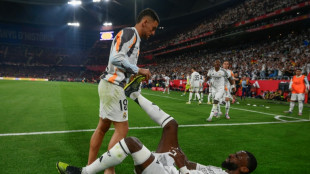 Real Madrid's Rudiger, Mendy and Alaba out injured until end of season
Real Madrid's Rudiger, Mendy and Alaba out injured until end of season
-
US threatens to quit Russia-Ukraine effort unless 'concrete proposals'
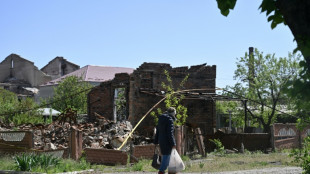
-
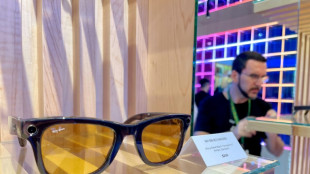 Meta releases standalone AI app, competing with ChatGPT
Meta releases standalone AI app, competing with ChatGPT
-
Zverev crashes as Swiatek scrapes into Madrid Open quarter-finals

-
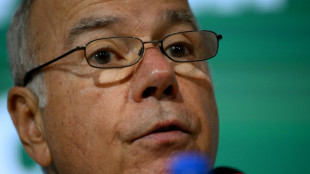 BRICS members blast rise of 'trade protectionism'
BRICS members blast rise of 'trade protectionism'
-
Trump praises Bezos as Amazon denies plan to display tariff cost
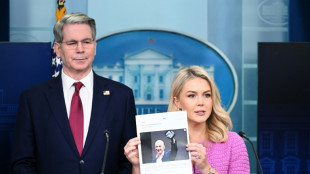
-
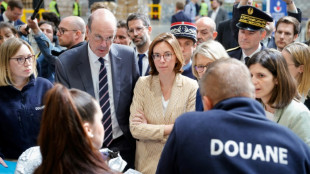 France to tax small parcels from China amid tariff fallout fears
France to tax small parcels from China amid tariff fallout fears
-
Hong Kong releases former opposition lawmakers jailed for subversion
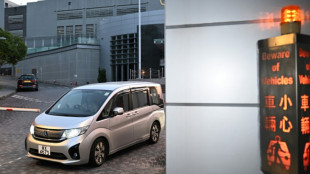
-
 Trump celebrates tumultuous 100 days in office
Trump celebrates tumultuous 100 days in office
-
Sweden gun attack leaves three dead
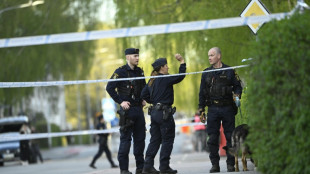
-
 Real Madrid's Rudiger banned for six matches after Copa final red
Real Madrid's Rudiger banned for six matches after Copa final red
-
Firmino, Toney fire Al Ahli into AFC Champions League final

-
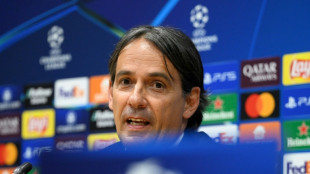 Maximum respect for Barca but no fear: Inter's Inzaghi
Maximum respect for Barca but no fear: Inter's Inzaghi
-
Trump signals relief on auto tariffs as industry awaits details

-
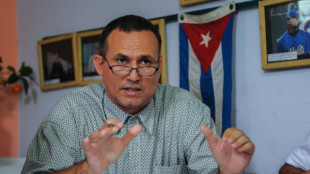 Cuban court revokes parole of two prominent dissidents
Cuban court revokes parole of two prominent dissidents
-
Narine leads from the front as Kolkata trump Delhi in IPL

-
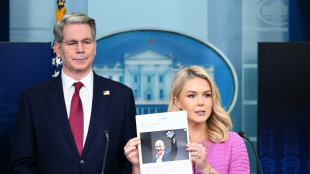 Amazon says never planned to show tariff costs, after White House backlash
Amazon says never planned to show tariff costs, after White House backlash
-
Djokovic to miss Italian Open

-
 Trossard starts for Arsenal in Champions League semi against PSG
Trossard starts for Arsenal in Champions League semi against PSG
-
Sweden shooting kills three: police
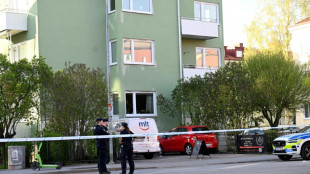
-
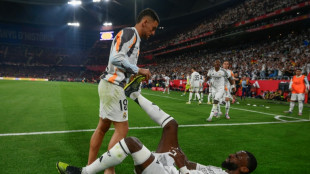 Real Madrid's Rudiger, Mendy out injured until end of season
Real Madrid's Rudiger, Mendy out injured until end of season
-
Dubois' trainer accuses Usyk of 'conning boxing world'

-
 Femke Bol targets fast return after draining 2024
Femke Bol targets fast return after draining 2024
-
Asterix, Obelix and Netflix: US streamer embraces Gallic heroes
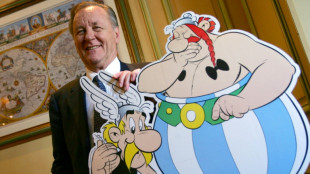
-
 Watson wins Tour de Romandie prologue, Evenepoel eighth
Watson wins Tour de Romandie prologue, Evenepoel eighth
-
Amazon says never decided to show tariff costs, after White House backlash
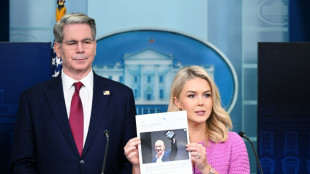
-
 India gives army 'operational freedom' to respond to Kashmir attack
India gives army 'operational freedom' to respond to Kashmir attack
-
Stocks advance as investors weigh earnings, car tariff hopes

-
 Canadian firm makes first bid for international seabed mining license
Canadian firm makes first bid for international seabed mining license
-
Kardashian robbery suspect says heist was one 'too many'
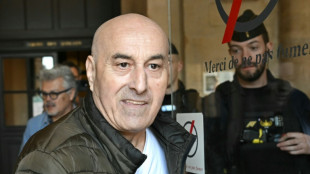
-
 'Chilled' Swiatek scrapes into Madrid Open last eight
'Chilled' Swiatek scrapes into Madrid Open last eight
-
Interconnectivity: the cornerstone of the European electricity network

-
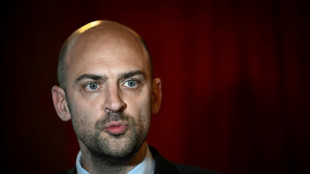 France accuses Russian military intelligence of cyberattacks
France accuses Russian military intelligence of cyberattacks
-
Multiple challenges await Canada's Carney

-
 US consumer confidence hits lowest level since onset of pandemic
US consumer confidence hits lowest level since onset of pandemic
-
How climate change turned Sao Paulo's drizzle into a storm
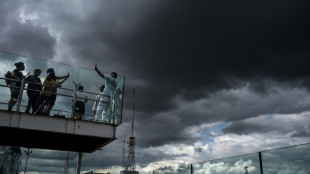
-
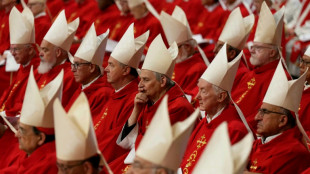 Video game rides conclave excitement with cardinal fantasy team
Video game rides conclave excitement with cardinal fantasy team
-
Candles and radios in demand in Spain as blackout lessons sink in
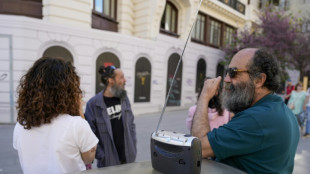
-
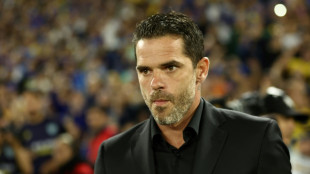 Boca Juniors sack coach Gago ahead of Club World Cup
Boca Juniors sack coach Gago ahead of Club World Cup
-
Trump celebrates tumultuous 100 days in office as support slips

-
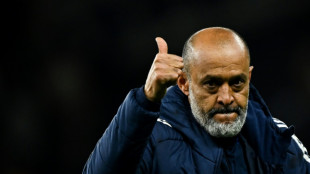 Forest face 'biggest games of careers' in Champions League chase: Nuno
Forest face 'biggest games of careers' in Champions League chase: Nuno
-
Stocks waver as investors weigh earnings, car tariff hopes
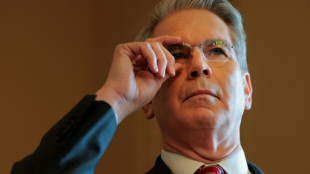
-
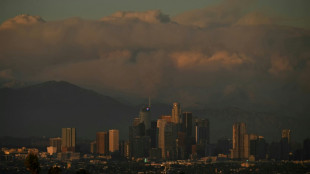 US climate assessment in doubt as Trump dismisses authors
US climate assessment in doubt as Trump dismisses authors
-
W. House slams Amazon over 'hostile' plan to display tariff effect on prices
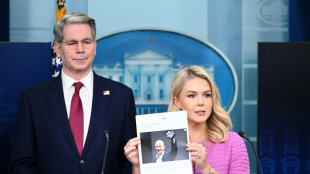
-
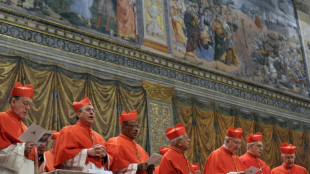 What we know ahead of conclave to elect new pope
What we know ahead of conclave to elect new pope
-
EU top court rules 'golden passport' schemes are illegal
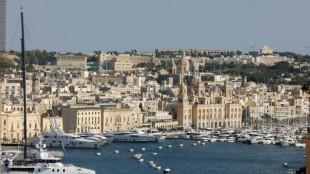
-
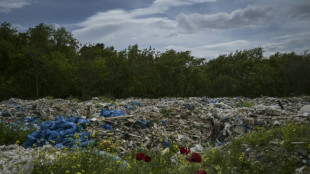 Mounds of waste dumped near Athens's main river: NGO
Mounds of waste dumped near Athens's main river: NGO
-
Spain starts probing causes of massive blackout
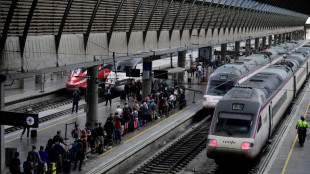

In UK, tourists discover darker side of Oxford and Cambridge
British universities Oxford and Cambridge are constantly ranked among the best in the world and celebrated for their academic excellence.
But their murkier history is being brought to life for tourists, as the country increasingly grapples with its colonial past.
"This is not the standard walking tour," warned guide and student Claire McCann, before leading her group onto the cobbled streets of Oxford, which attract some seven million visitors every year.
Majestic buildings, many dating back to the Middle Ages, bear witness to the rich history of the university city, some 50 miles (80 kilometres) northwest of London.
Most British prime ministers, including current UK leader Rishi Sunak, and the Labour main opposition leader Keir Starmer, have studied behind the high walls of Oxford's various colleges.
But their university years are not the subject of the tour, which instead focuses on "difficult legacies" -- a burning issue brought to the fore in the UK since Black Lives Matter anti-racism protests.
First stop on the tour is Oriel College, outside of which sits a statue of alumnus Cecil Rhodes (1853-1902), a coloniser who dreamed of a British Africa from Cape Town to Cairo.
McCann, originally from South Africa, read a quote of Rhodes in which he described Africans as the "most despicable specimens of human beings".
She highlighted his role in the Second Boer War (1899-1902) and that he founded De Beers, which is still the world's number one diamond company.
As part of the tour, she talked about the "exploitation" in the mines, which made Rhodes a fortune and also allowed him to set up one of the most prestigious academic awards in the world.
Notable Rhodes scholars include former US president Bill Clinton.
"What should happen with the statue?" asked McCann.
- Slavery -
The "Rhodes Must Fall" campaign launched by students called for the statue's removal. But Oxford decided in 2021 that the statue would remain in place.
A short walk away across the High Street is All Souls College, which McCann described as "the most exclusive college in Oxford".
Dating back to the 1430s, it is one of the richest and only accepts two or three new research students per year.
"All Souls demonstrates for us how networks of prestige have historically been supported by economic exploitation and slavery," said McCann.
Following the Black Lives Matter protests of 2020, All Souls announced that it would no longer call its library after Christopher Codrington, a former student.
When Codrington died in 1710, he left part of his fortune to the university, which according to All Souls' website came "largely" from his family's plantations in the West Indies that were "worked by enslaved people of African descent".
More than 20,000 people have participated in the walks, called Uncomfortable tours, since they started in 2018.
They also exist in Cambridge and the founders hope to extend them to London and even Paris.
"Did you know that Oxford and Cambridge combined own more land than the Church of England?" asked guide Ashley Lance as she walked along the tranquil River Cam, opposite Cambridge University's sumptuous King's College Chapel.
"According to a study published in 2018, Cambridge is the most unequal city in Britain," she added.
- 'Shocking' -
Lance, 27, explained that two worlds exist in the city: one comprised of the university, with its students, professors and laboratories and the other made up of the rest of the population.
Despite their rivalries -- Oxford is referred to as "the other place" in Cambridge -- the two universities have had much in common.
Women were able to study at Oxford from 1870, but had to wait until 1920 to qualify for a degree.
They were banned from libraries for a long time, for fear they would be "far too distracting" to men, explained McCann.
Oriel, founded in 1326, was the last Oxford college to open its doors to women, in 1985.
In Cambridge, St John's College, founded in 1511, accepted women from 1980. But on the day the first female students arrived, a faculty official lowered a flag to half-mast and wore a black armband.
"It's so shocking," said one exasperated Londoner on the tour, visiting with her daughter.
Michelle Miller, an American who has just moved to Oxford with her husband, said she was interested in the lesser-known aspects of popular tourist destinations.
"We didn't know there were so many controversies," the 52-year-old told AFP.
F.Dubois--AMWN



